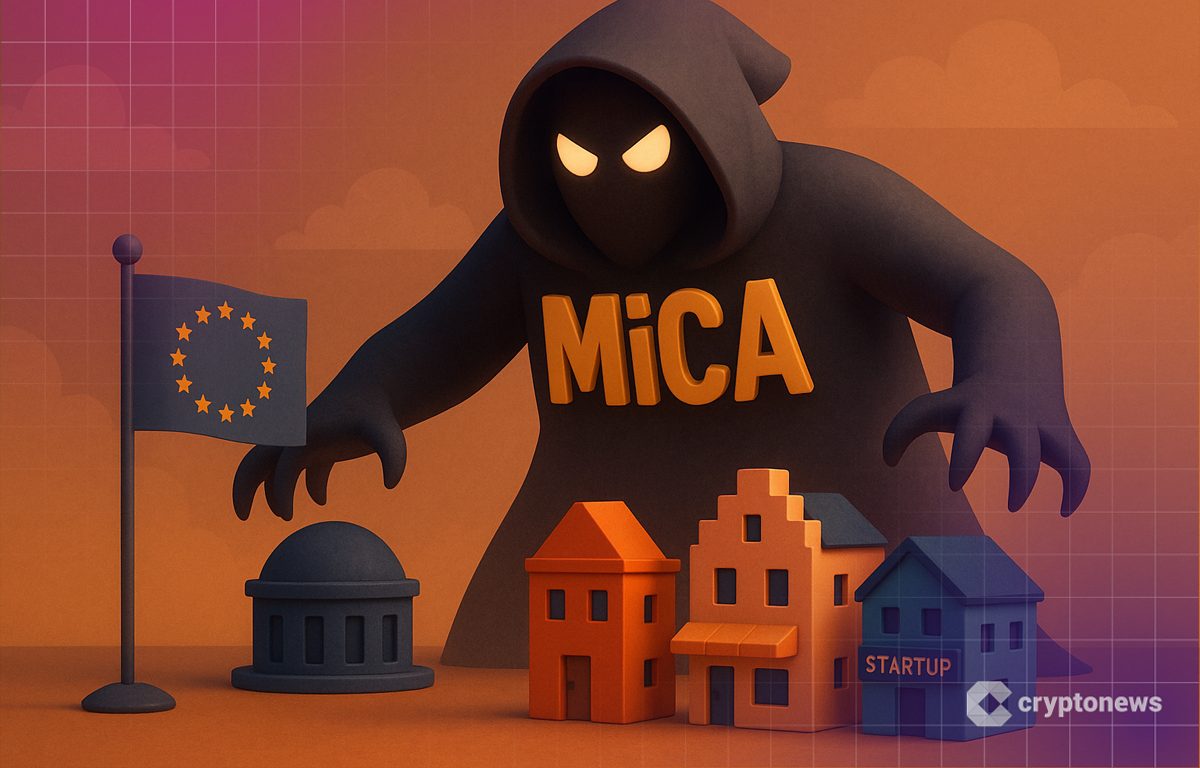MiCA Crush? How Europe’s Crypto Crackdown Could Stifle Small Innovators

Brussels just dropped a regulatory bomb—and DeFi startups are scrambling for cover. The EU's Markets in Crypto-Assets (MiCA) framework promises investor protection, but whispers of 'innovation strangulation' grow louder.
The Compliance Guillotine
Small teams without legal departments face six-figure compliance costs just to operate. One anonymous founder calls it 'a tax on being small'—while TradFi-backed stablecoin issuers pop champagne.
Gray Market Exodus
At least 12 micro-cap projects have already pivoted to offshore entities since Q1 2025. 'We can't afford to be compliant until we're profitable,' admits a founder now incorporating in the Seychelles.
The Irony of 'Harmonization'
MiCA's supposed level playing field has VCs quietly funneling €40M+ into 'regulatory arbitrage' startups. Because nothing unites Europe like loophole hunting.
As one banker smirked during a recent panel: 'Finally, crypto learns what SMEs already know—regulation is just cost of entry for the little guys.' The revolution will be centralized.
MiCA: High Stakes, High Standards
Let’s be honest — getting licensed under MiCA isn’t plug-and-play. Whether you’re launching a tokenized product, issuing stablecoins, or operating a DeFi app with centralized touchpoints, the requirements are tough:
- Authorization from a national competent authority (in Spain, the CNMV)
- A whitepaper that meets strict legal and technical standards
- Capital requirements and governance structures
- Mandatory compliance, reporting, and consumer protection measures
- And — most critically — restrictions on marketing to EU clients without proper authorization
This isn’t just about regulation — it’s about architecture. And that means time, cost, and internal restructuring.
For Small Projects, the Challenge Is Real
For a lean Web3 startup without institutional investors, a MiCA license may seem like a distant goal. Not because the regulation’s spirit is wrong — but because the compliance process demands:
- Thorough legal and technical documentation
- Restructuring the business model to fit EU financial norms
- Implementing custody, KYC, and internal audit frameworks
- And translating crypto-native innovation into language regulators can understand
Many projects already have the technical talent — they just need someone who can translate that innovation into a language regulators understand.
Here’s What Happens If You Slip
MiCA isn’t just about ticking regulatory boxes. It represents a fundamental shift in how crypto projects must align themselves with the broader framework of European financial law. That includes anti-money laundering directives, governance and reporting obligations, consumer protection norms, and risk management protocols.
Even activities that seem harmless — like launching a utility token with speculative potential, or passively reaching EU users through SEO or social media — can trigger regulatory scrutiny under MiCA if not legally vetted. And the consequences are far from symbolic:
- Substantial financial penalties
- Cease-and-desist orders without prior notice
- Geo-blocking of websites and platforms across EU jurisdictions
- Investigations that may extend beyond the company to beneficial owners and board members
While ESMA’s MiCA guidelines don’t explicitly mention personal liability, it’s well established under EU financial law that responsibility can extend to individuals, especially where compliance failures result from negligence or omission.
Dealing with MiCA in Spain
Although MiCA is an EU-wide regulation, its implementation and enforcement happen at the national level. In Spain, this means engaging directly with the CNMV (Comisión Nacional del Mercado de Valores) and Banco de España, both of which take an active role in supervising crypto-related services.
This creates a dual challenge for projects operating — or marketing — within the Spanish market. On one hand, they must comply with EU-level requirements. On the other, they must interpret and meet the expectations of Spanish financial supervisors, who are particularly demanding when it comes to technical documentation, AML procedures, and internal governance.
As to the personal experience, in our law firm during the past years we’ve worked with a wide range of crypto projects that have strong technical foundations but lack the legal guidance needed to structure their protocols in a way that aligns with European regulatory standards. Each project is unique, there is no template applicable, this is why we tend to hold direct communications with the CNMV, submitting inquiries regarding innovative business models, as well as assisting is translating complex crypto infrastructures into clear, coherent legal documentation that supervisors can understand.
Having a great idea or project isn’t enough — under MiCA, you need to translate protocol logic into regulatory language.
MiCA Is a Filter — Not a Ban
The hard truth? Under MiCA, small teams without corresponding regulatory support may struggle. But this is not the same as exclusion. With the right advisors, MiCA becomes more than a hurdle — it becomes a passport. A MiCA license allows you to operate across 27 EU countries, access traditional banking partners, and gain the trust of institutional investors. It’s not about legal box-checking — it’s about building real market access.
Final Thought: Legal Infrastructure Is Core Infrastructure
MiCA is not the end of crypto in Europe — it’s the end of improvisation. For any project issuing, building, or promoting crypto assets — even from outside the EU — regulation must now be a foundational part of the strategy.
If you’re serious about launching or scaling in the European market, your first step shouldn’t just be building a product. It should involve building a compliant legal foundation.
And if Spain is part of your strategy, partnering with a legal team that truly understands both fintech innovation and regulatory nuance can be the deciding factor between regulatory friction and long-term success under MiCA.
Disclaimer: The opinions in this article are the writer’s own and do not necessarily represent the views of Cryptonews.com. This article is meant to provide a broad perspective on its topic and should not be taken as professional advice.

